Data Sensitive

How do data protection regulations handle sensitive personal data ?
Handling sensitive personal data under data protection regulations requires strict adherence to principles such as consent, minimization, purpose limitation, and security. Regulations like the GDPR in the EU, CCPA in the US, and PIPEDA in Canada impose specific conditions for processing sensitive information. Organizations must adopt best practices including assessment, privacy impact assessments, employee training, access controls, and monitoring to ensure compliance and protect individuals' privacy rights.

Is network slicing secure for sensitive data transmission ?
Network slicing is a technology that allows multiple virtual networks to coexist on a shared physical infrastructure, enabling service providers to offer customized services with different QoS requirements. While network slicing offers numerous benefits such as customization, resource allocation, scalability, and isolation, there are also potential security concerns that need to be addressed. These include data isolation, access control, encryption, and intrusion detection and prevention systems (IDPS). By implementing robust isolation mechanisms, access control policies, strong encryption algorithms, and effective IDPS, service providers can leverage network slicing while maintaining the security of sensitive data transmission.

Is data encryption necessary for all types of businesses and industries ?
The Importance of Data Encryption in Modern Business Operations Data encryption is a crucial aspect of modern business operations, ensuring confidentiality, integrity, and availability of sensitive information. Different types of businesses and industries handle varying degrees of sensitive data, requiring robust security measures. Healthcare, finance, e-commerce, and legal sectors are examples where encryption is necessary due to the nature of the data they handle or regulatory requirements. However, the necessity of implementing encryption can depend on factors such as the type and amount of sensitive data, risk assessment, and compliance with legal requirements. To implement data encryption, businesses must assess their needs, develop a data protection policy, choose appropriate technologies, integrate them into systems and processes, and regularly monitor and maintain these measures. While not always necessary for every business, data encryption is often a wise investment that can protect sensitive information and ensure business continuity.

How can we ensure that climate change adaptation and mitigation strategies are gender-sensitive ?
To ensure that climate change adaptation and mitigation strategies are gender-sensitive, it is important to recognize the gendered impacts of climate change, involve women in decision-making processes, address gender inequalities in access to resources, promote gender-sensitive research and data collection, and provide gender-sensitive education and training. By taking these steps, we can ensure that climate change adaptation and mitigation strategies are designed and implemented in a way that takes into account the different needs and priorities of women and men.

What measures do variety shows take to prevent sensitive information from being leaked ?
Variety shows take measures to prevent sensitive information leaks, such as non-disclosure agreements and confidentiality clauses in contracts. They also control access to sensitive information, implement security measures, and provide training and education for participants and crew members. These strategies help ensure the privacy and security of participants while providing entertaining content for viewers.
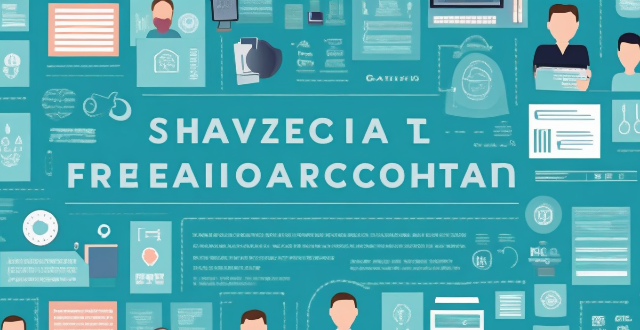
What is data privacy ?
Data privacy is the protection of personal information from unauthorized use. It's important for individual rights, building trust, legal compliance, and risk mitigation. Principles include data minimization, anonymization, encryption, transparency, consent, access control, retention, integrity, and accountability. Best practices involve regular audits, employee training, updating policies, secure systems, and response plans for data breaches.
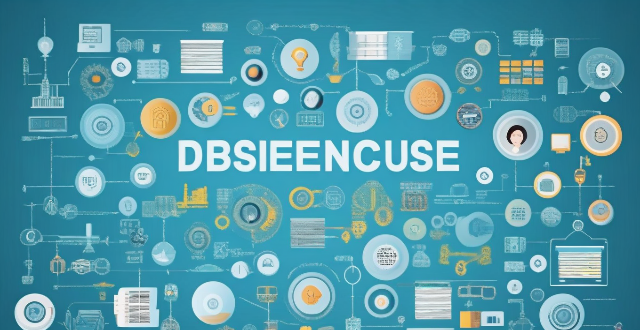
What are the consequences of a data breach ?
This text discusses the consequences of a data breach, including financial losses, loss of trust, reputation damage, and regulatory fines. It also highlights the long-term impact on business, legal implications, and personal impact such as identity theft and emotional distress. The text suggests mitigating measures such as implementing strong security measures, training employees, having a response plan, regularly updating systems, limiting access to sensitive data, backing up data, and insuring against data breaches.

What is the role of encryption in securing data transmission ?
Encryption is crucial for securing data transmission by converting plain text into unreadable ciphertext, ensuring confidentiality, integrity, and authentication. It protects sensitive information, prevents data tampering, enhances trust, complies with regulations, and reduces the risk of data breaches. Two main types of encryption are symmetric and asymmetric encryption, each using different keys for encryption and decryption.
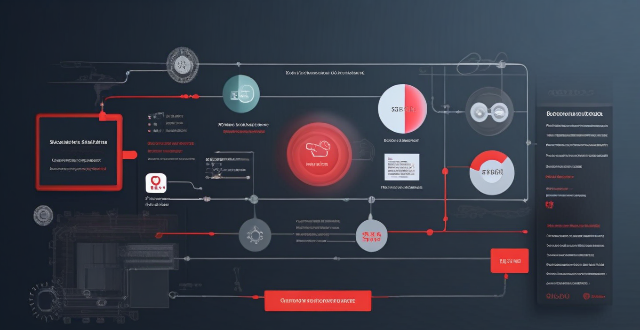
Can data encryption prevent data breaches and cyber attacks ?
Data encryption is a crucial security measure that can significantly reduce the risk of data breaches and cyber attacks by converting plain text into an unreadable format. However, it does not completely eliminate the risk of data breaches and cyber attacks. Encryption works through complex algorithms to scramble data so that it appears as random characters, requiring a secret key (or password) to decrypt the data back into its original form. There are two main types of encryption: symmetric and asymmetric. While encryption offers benefits such as confidentiality, integrity, authentication, and non-repudiation, it also has limitations including key management challenges, performance overhead, compatibility issues, human error, and advanced persistent threats (APTs). Therefore, organizations should implement other security measures such as firewalls, intrusion detection systems, regular security audits, and employee training programs to minimize the risk of cyber threats.

What is data encryption and how does it work ?
Data encryption is a crucial cybersecurity measure that transforms plaintext into ciphertext, protecting it from unauthorized access. It involves the use of complex algorithms and secret decryption keys. Encryption is significant for securing data at rest, in transit, and during processing, helping meet compliance requirements and reducing financial risks associated with data breaches. Its evolution includes historical precursors and wartime innovations, with AI expected to enhance its capabilities in the future.

What are the benefits of using data encryption in business ?
Data encryption in business offers protection of sensitive information, compliance with legal requirements, enhanced customer trust, defense against cyber threats, and controlled data access. It ensures confidentiality and integrity of communications, helps meet regulatory standards, safeguards personal data, builds customer confidence, mitigates risks of data breaches, guards against malware and ransomware, provides role-based access control, and simplifies key management. This makes encryption an essential tool for securing digital assets and strengthening a company's market position.
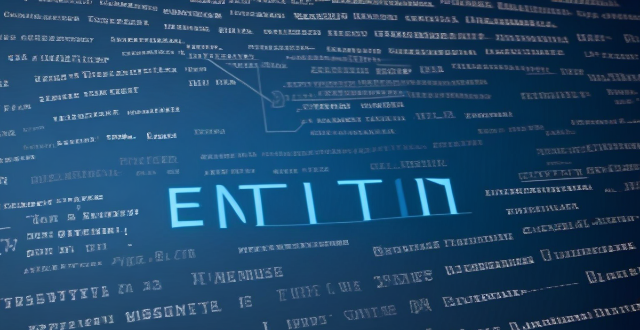
Why is data encryption important for online security ?
Data encryption is crucial for online security, protecting dataData encryption is crucial for online security, protecting data the financial impact of breaches It has evolved from ancient uses to a critical tool in today's digital landscape, with AI optimizing key management and enhancing algorithms.

What is the best way to secure my iPhone's data ?
Securing your iPhone's data is crucial in today's digital age. Here are some tips on how to keep your information safe: 1. Use a strong passcode that includes a mix of letters, numbers, and symbols. 2. Enable two-factor authentication for an extra layer of security. 3. Use Touch ID or Face ID for biometric authentication. 4. Keep your iPhone up-to-date with the latest software updates. 5. Use encrypted Wi-Fi networks and avoid unsecured networks. 6. Be wary of phishing scams and don't reveal sensitive information. 7. Regularly back up your data using iCloud or iTunes. 8. Use a VPN to encrypt your internet connection when accessing sensitive information online.

What are some examples of data breaches and how do they affect individuals ?
Data breaches have become a pervasive issue in the digital age, affecting millions of individuals worldwide. These incidents can compromise sensitive information and have far-reaching consequences for those affected. In this discussion, we will explore some notable examples of data breaches and examine how they impact individuals.
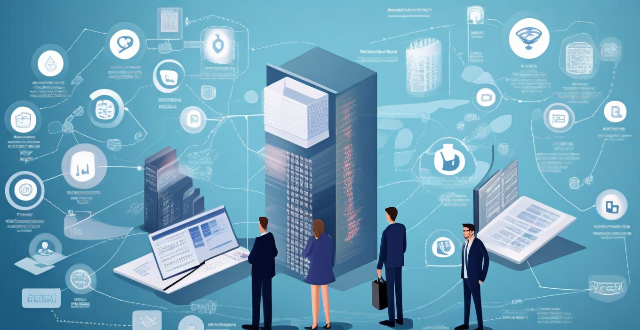
How do remote education platforms ensure data privacy and security ?
Remote education platforms ensure data privacy and security through encryption, access controls, two-factor authentication, regular security audits, and data retention policies. These measures help protect user data during transmission and storage, restrict access to sensitive information, add an extra layer of security, identify and fix vulnerabilities, and minimize the risk of data breaches.

How can companies prevent data breaches ?
Data breaches can be devastating for companies, leadingData breaches can be devastating for companies, leadingal damage, and legal consequences To prevent data breaches, companies should implement a multi-layered approach that includes the following strategies: 1\. Develop a Security Policy 2\. Use Encryption 3\. Implement Access Controls 4\. Educate Employees 5\. Keep Software Up-to-Date 6\. Conduct Regular Audits and Tests 7\. Have an Incident Response Plan
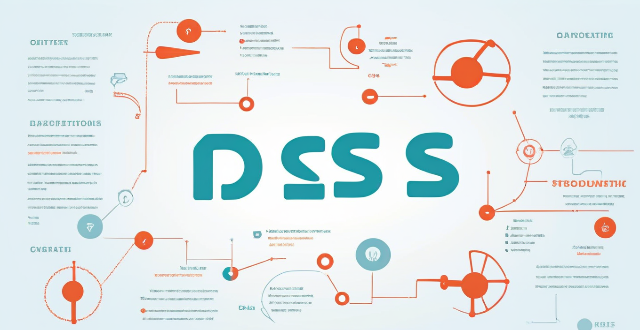
What are the risks associated with weak or improperly implemented data encryption ?
This article discusses the risks associated with weak or improperly implemented data encryption, which can lead to data breaches, loss of trust from customers and stakeholders, legal and regulatory compliance issues, difficulty in recovery, vulnerability to advanced threats, difficulty in detecting breaches, and diminished protection against insider threats. It emphasizes the importance of using strong encryption algorithms, implementing them correctly, and regularly reviewing and updating encryption practices to protect sensitive information and maintain trust.
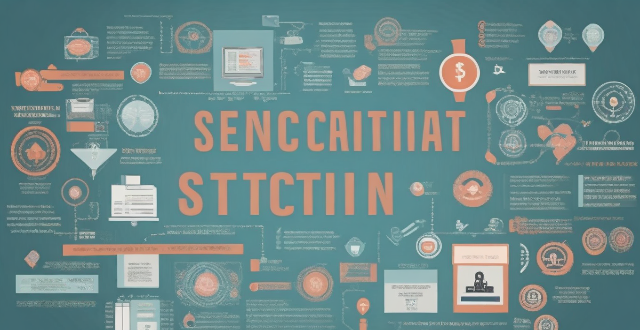
What measures can be taken to protect sensitive information during communication ?
Protecting sensitive information during communication is crucial to prevent unauthorized access or interception. Effective measures include encryption, secure communication protocols, multi-factor authentication, access control, and regular updates and patches. Encryption converts data into a coded language that requires a key or password for deciphering. Secure communication protocols like HTTPS, SSH, and SSL/TLS provide an additional layer of security by ensuring encrypted and authenticated communication. Multi-factor authentication adds an extra layer of security by requiring multiple forms of identification before accessing sensitive information. Implementing strict access control policies helps limit who has access to the data and ensures only authorized individuals can view or modify it. Keeping software and systems up-to-date with the latest patches and updates is essential for maintaining the highest level of security. By implementing these measures, organizations can significantly reduce the risk of unauthorized access or interception of sensitive data during transmission.
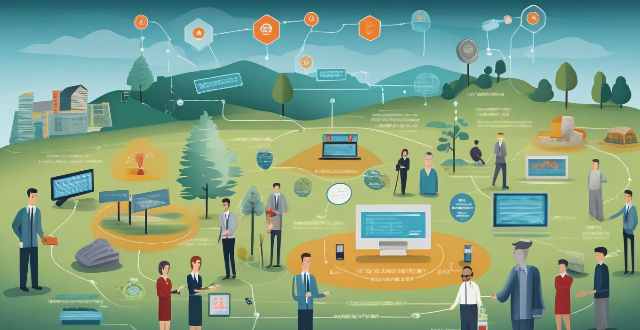
Can blockchain technology improve data security and privacy ?
Blockchain technology has been touted as a revolutionary tool that can improve data security and privacy. Its decentralized nature, encryption, and transparency make it difficult for attackers to compromise the network. Additionally, its anonymity, control over personal data, and smart contracts enhance privacy by giving individuals more control over their information.

What role does data privacy play in the use of data analytics in education ?
Data privacy is a crucial aspect of educational data analytics, ensuring the protection of student information, compliance with legal frameworks, and building trust among stakeholders. It encompasses measures such as maintaining confidentiality, integrity, and availability of data, adhering to regulations like FERPA, and obtaining explicit permission from students and parents. Challenges include potential misuse of data, bias, and discrimination. Best practices involve developing clear policies, implementing technical measures like encryption and access controls, and educating staff and students about their rights. By addressing these challenges and implementing best practices, educational institutions can harness the power of data analytics while safeguarding the privacy rights of their students.

Can you explain the concept of 'data minimization' in data protection laws ?
Data minimization is a crucial principle in data protection laws that requires organizations to collect and process only the minimum amount of personal data necessary for specified, explicit, and legitimate purposes. This concept aims to protect individuals' privacy by limiting the potential harm that can result from the misuse or breach of their personal information. Key aspects of data minimization include collection limitation, purpose specification, data retention, data security, and accountability and transparency. Implementing robust security measures is crucial to ensure the confidentiality, integrity, and availability of personal data. Adhering to data minimization principles helps organizations comply with various data protection laws, fosters trust between individuals and organizations, reduces the risk of privacy breaches and violations, mitigates potential damage caused by cyberattacks or data breaches, and leads to cost savings for organizations due to reduced storage requirements and associated management costs.
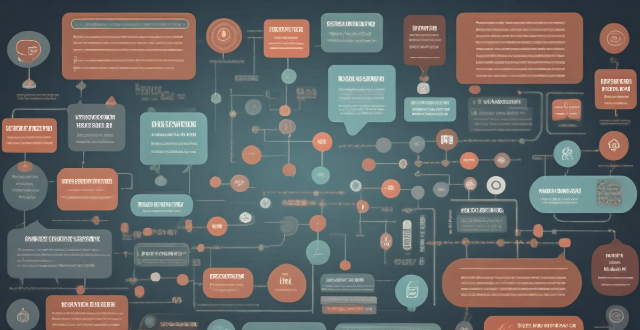
How do data protection regulations impact marketing strategies ?
Data protection regulations significantly impact marketing strategies by dictating how companies can collect, store, and use personal information. Marketers must adapt their strategies to comply with these regulations while achieving business objectives. Key areas affected include obtaining explicit consent for data collection, minimizing data collection, providing individuals with the right to access and erasure of their data, ensuring robust data security measures, and being aware of restrictions on international data transfers. By adhering to these requirements, marketers can build trust with consumers and maintain a positive brand image in today's data-driven world.

How is blockchain technology being used to secure patient data in the healthcare sector ?
Blockchain technology is transforming healthcare by securing patient data through decentralization, immutability, encryption, and smart contracts. It also facilitates interoperability, standardizes data formats, and enables supply chain management and audit trails. This technology enhances patient care and privacy, with potential for further innovations in the future.
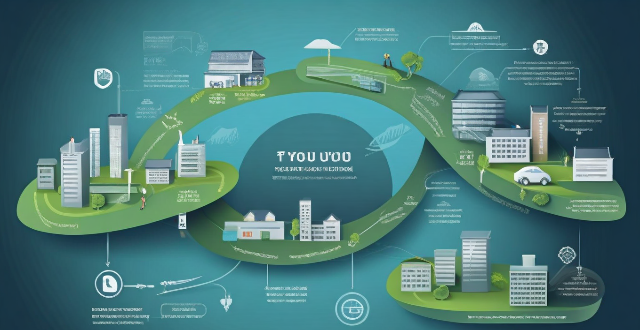
What happens to my data after I recycle my electronic devices ?
When you recycle your electronic devices, several stepsWhen you recycle your electronic devices, several steps data is securely erased several steps are taken to ensure your data is securely erased and the device is properly disposed of. This includes data erasure, disassembly, recycling, reuse and donation, and final disposal. Recycling helps protect your personal data and reduces environmental impact by conserving resources and reducing waste.

**Is my data safe with iCloud's privacy features ?
iCloud, Apple's cloud storage service, offers several privacy and security features to protect user data. These include Private Relay for anonymous browsing, end-to-end encryption for secure transmission, two-factor authentication for account security, tracking prevention for apps and websites, data breach notifications, encrypted cloud storage, privacy reports, password security monitoring, child safety features, and regular security updates. While these features provide robust protection, users should still practice good digital hygiene to further safeguard their data.

How can I control who has access to my personal data ?
How can I control who has access to my personal data? To control who has access to your personal data, it's important to: 1. Understand what personal data you have and where it is stored. 2. Review privacy policies and settings of websites and apps you use regularly. 3. Use strong passwords and two-factor authentication to protect your accounts. 4. Limit the amount of personal data you share online. 5. Regularly review and update your privacy settings. By taking these steps, you can help protect your personal data from unauthorized access and ensure that it remains private.

What are some common challenges faced by educators when implementing data analytics in their classrooms ?
Educators face several challenges when implementing data analytics in their classrooms, including a lack of training and support, limited access to technology and data, time constraints, resistance to change, and privacy and ethics concerns. These challenges can make it difficult for teachers to effectively integrate data analytics into their teaching practices, potentially limiting the benefits that data-driven strategies can offer for improving student outcomes.

What are some best practices for protecting sensitive information on social media ?
Protecting sensitive information on social media is crucial in the digital age. To safeguard your personal data, follow these best practices: use strong passwords and a password manager; enable two-factor authentication; be cautious with personal information sharing; adjust privacy settings to restrict access; install anti-malware software; be wary of phishing scams; and always log out of accounts, especially on public devices. These steps will help ensure your online presence is secure.

How does data encryption affect computer performance ?
Data encryption is crucial for securing data but can affect computer performance by increasing processor load, memory usage, disk I/O, network latency, and reducing battery life.
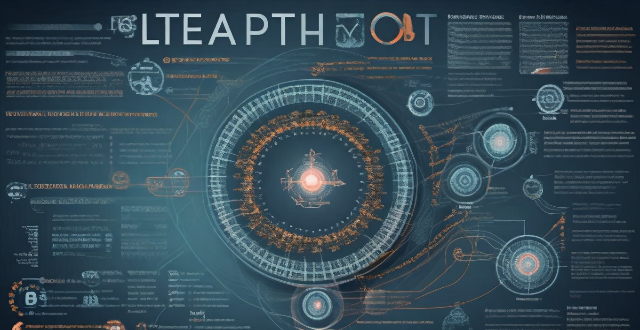
How do data protection regulations apply to artificial intelligence and machine learning ?
The article discusses the relationship between data protection regulations and artificial intelligence (AI) and machine learning (ML). It highlights that these technologies require large amounts of personal data, which raises concerns about privacy and security. The article outlines key considerations for ensuring compliance with data protection regulations, such as transparency, accountability, automated decision-making, and data minimization. It also provides best practices for organizations to implement AI/ML systems while maintaining compliance with data protection laws.